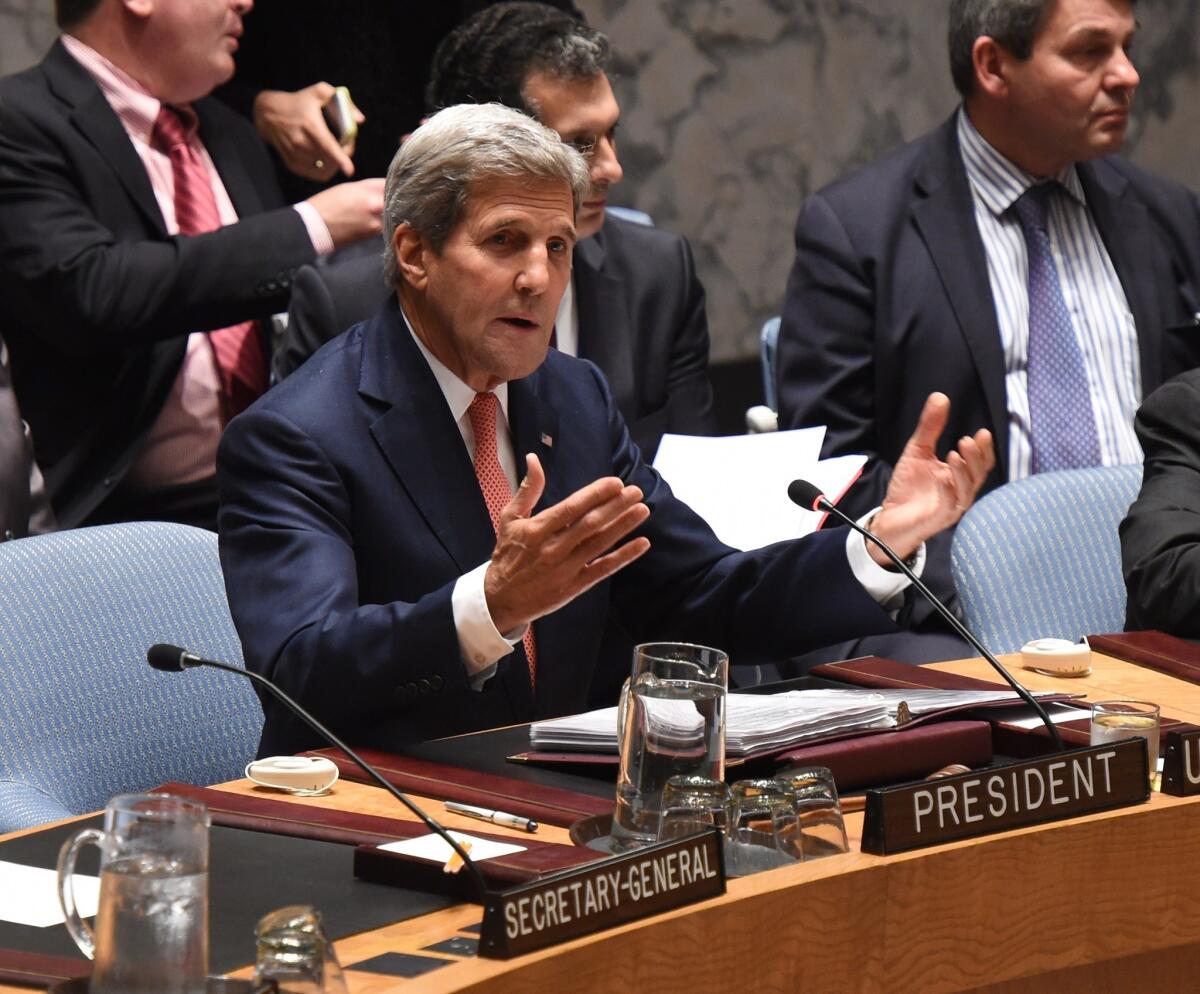GOP senators press White House over potential offer to Iran

A group of Republican senators has asked the Obama administration to explain a proposal U.S. officials have made in nuclear talks with Iran that the senators worry would allow Tehran to more easily race to a nuclear bomb-making capability.
The proposal, disclosed by Iranian Foreign Minister Mohammad Javad Zarif in private conversations with U.S. experts this week in New York, would have Iran disconnect, rather than dismantle, many of its centrifuges used to enrich uranium.
------------
FOR THE RECORD
An earlier version of this post incorrectly stated that Mohammad Javad Zarif made his comments during private conversations last week. He spoke this week.
------------
The proposal could become part of the nuclear deal the United States and five other world powers are trying to negotiate with Iran.
U.S. officials have floated the idea as a possible means of extending Iran’s nuclear “breakout time,” the time required to quickly complete the final steps to acquiring a nuclear weapons capability. The West wants to extend the breakout time so it has more room to respond to prevent Iran from crossing the nuclear threshold.
The proposal would have the advantage of allowing Iran to make a face-saving claim that it had not dismantled centrifuges, a step Iranian officials have publicly claimed they would never take.
But the 31 senators, skeptical that the proposal would slow Iran by much, said in a letter to Secretary of State John F. Kerry that they were concerned that the administration “may now be offering troubling nuclear concessions to Iran in the hopes of rapidly concluding negotiations for a ‘deal.’”
In a letter, initiated by Sen. Mark Steven Kirk (R-Ill.), the senators asked whether the administration would accept disconnection rather than elimination of centrifuges. They also wanted to know whether U.S. officials would allow Iran to cap its output of enriched uranium, rather than destroying centrifuges.
The U.S. proposal was first disclosed by the New York Times on Friday night.
A senior administration official said that parts of the New York Times story were unclear “and we’re not exactly sure what it was referring to.” But the official acknowledged that removal of nuclear equipment is under discussion in the talks, as a means of extending breakout time.
The official, who declined to be identified under customary administration ground rules, said, speaking of the centrifuge process, “It takes a lot of time to put a cascade together, and piping is one of the most time-consuming parts of that laborious process.”
The six world powers, under pressure to complete a deal by a Nov. 24 deadline, began a new round of talks with Iran this week amid the annual United Nations General Assembly in New York.
Experts said the idea of disconnecting centrifuges, in various forms, has been present in Western talks with Iran for more than a decade.
David Albright and Olli Heinonen, two leading nuclear experts, said in emails Saturday that reconnecting centrifuges can take varying amounts of time, depending on how thoroughly the decoupling is done and whether related equipment is also disconnected and removed to storage. The simplest disconnection can be restored in days while other processes could take many months, the experts said.
Many U.S. lawmakers, as well as officials of Iran’s regional rivals, such as Israel and Saudi Arabia, are worried that the six world powers — the United States, Britain, China, France, Germany and Russia — will accept an overly lenient deal to try to settle the long-running conflict without war.
Follow @richtpau on Twitter for coverage of the Iran nuclear talks
More to Read
Start your day right
Sign up for Essential California for news, features and recommendations from the L.A. Times and beyond in your inbox six days a week.
You may occasionally receive promotional content from the Los Angeles Times.







